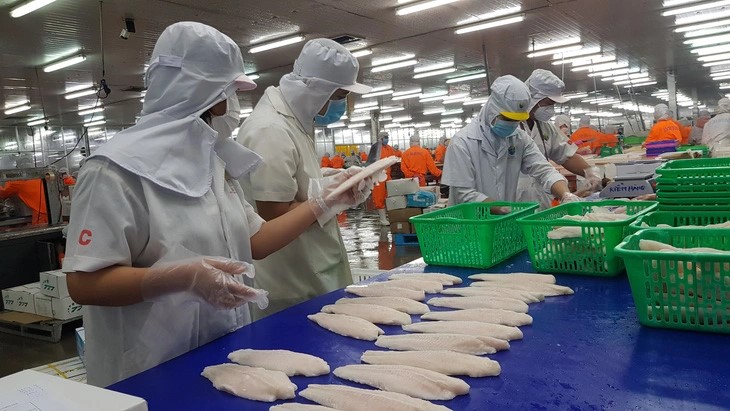An American inspection team has spoken highly of Vietnam’s food safety control system for the country’s tra fish (pangasius) exports to the U.S., despite its few minor errors, the Vietnamese agriculture ministry reported recently.
Deputy Minister of Agriculture and Rural Development Phung Duc Tien was speaking to local media in reference to a recent inspection by the U.S. Department of Agriculture’s Food Safety and Inspection Service (FSIS) over Vietnam’s food safety control of tra fish.
An FSIS inspection team worked from August 7 to 22 in Vietnam to evaluate the system’s efficiency through their various examinations, Tien said.
During their inspection, the team assessed all the factors influencing the system, including designated authorities’ supervision, food safety regulations, consumer protection measures, hygiene oversight, Hazard Analysis and Critical Control Point System (HACCP) testing, chemical residue control, laboratory testing, and microbial analysis, he elaborated.
“The team spoke highly of almost all the facilities they visited during the inspection process, except for minor technical errors found at some farms and businesses,” the deputy minister confirmed.
FSIS inspectors conducted audits at 10 establishments that process and export tra fish to the U.S., five tra fish farms that provide raw materials for processors and exporters in Can Tho, Dong Thap, Tien Giang, and Soc Trang, all located in the Mekong Delta.
They also worked with three branches of the Department of Quality, Processing, and Market Development under the agriculture ministry.
With some inconsiderable shortcomings, Vietnam’s food safety control system for tra fish is still qualified to ensure the continued export of this species to the U.S., director of the department Nguyen Nhu Tiep said at a meeting on August 30.
Vietnam has recently become the number-one supplier of tra fish to the U.S., accounting for 91 percent of the latter’s total import of this commodity, according to the Vietnam Association of Seafood Exporters and Producers (VASEP).
However, the January-July period of this year saw a decline in tra fish shipments to the U.S., with total earnings recorded at about US$1 billion, down 37 percent from a year earlier, the VASEP reported.
The decline resulted from some unfavorable factors including high inflation in the U.S. economy, which has been at risk of recession, and American importers’ high tra fish inventory, the association explained.
In that context, the VASEP forecast that tra fish exports to the U.S. may reach only $2 billion this year, a decrease of 15 percent compared to 2022.
Like us on Facebook or follow us on Twitter to get the latest news about Vietnam!

















































